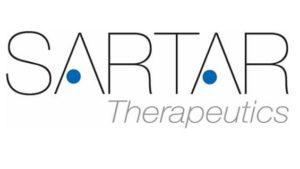Sartar Therapeutics wants to revolutionize sarcoma therapy

Today, the focus of cancer therapy is continuously moving towards more personalized medicine. However, very few efficacious therapies are available for sarcomas. For example, advanced soft-tissue sarcomas are rare and often lethal cancers, posing problems for doctors.
There is a clear, presently unmet need to find new therapies for the broad and heterogeneous group of sarcomas, says Katja Ivanitskiy, CEO of Sartar Therapeutics.
“We are committed to delivering innovative, therapeutic options for the patients who currently have no specific therapies – and also for those who have exhausted all currently available options,” she explains.
Sartar exploits principles of precision medicine, drug repurposing and reformulation to provide effective cancer therapies to the global markets. The startup deploys a unique academic discovery pipeline to identify novel therapeutic agents acting on human cancer cells.
“Repurposing and reformulation enable fast, cost-effective and de-risked development of the first-in-class therapeutics for specific subgroups of sarcomas,” Ivanitskiy says. “As a group of rare and very rare cancers, sarcomas provide many opportunities for a fast-track regulatory path using the orphan designation.”
Sarcomas common with children
According to Ivanitskiy, soft-tissue sarcomas represent a rare and heterogenous group of mesenchymal tumors, accounting for 1% of all adult cancers and more than 7% of all pediatric cancers. It is estimated that approximately 0.4% of people will be diagnosed with a soft-tissue sarcoma during their lifetime.
“Localized soft-tissue sarcomas are treated with surgery, with or without post-operative radiotherapy, with a high success rate, but few – if any – efficacious therapies are available for patients with metastatic tumors; 25-30% of these people die from cancer within five years of diagnosis,” says Ivanitskiy.
GIST (gastrointestinal stromal tumor) is the exception among soft-tissue sarcomas, as there are precision medicines available to treat it. Ivanitskiy explains that a genetic mutation activates either KIT or platelet-derived growth factor alpha receptors abnormally, which enables the continuous growth and division of tumor cells.
“About 40% of patients, including those who have metastatic disease or tumors with a high risk of recurrence, are treated with KIT and platelet-derived growth factor receptor alpha-targeting small molecule compounds such as imatinib. These therapeutics are effective, but eventually most GISTs become resistant to therapy, and novel approaches to treat GISTs are needed,” she believes.
Fighting GISTs
Sartar’s first precision medicine product to treat these tumors, SAR001, specifically targets the PDE3A protein, which is frequently expressed in GIST and other soft-tissue tumors.
“With treating GIST, we’ve already had great success and are looking to build on that,” she says. According to a market study commissioned by Sartar, a proven medicine for GIST alone could achieve sales of €550 million in the EU and US markets.
Harri Sihto, Chairman of the Board of Sartar Therapeutics, says that the work of the company is rooted on the research done by Heikki Joensuu and his team in 2013. The idea seemed so promising that the company was launched in 2016, also for the purpose of seeking a patent for the innovation.
“SAR001 worked in animal testing and we were confident that it would work with human patients too,” he explains. After getting the word out on the discovery, other people became interested too – and, finally, in autumn 2020, Sartar corralled €2.3 million in seed money in just six days.
With the immediate funding needs being taken care of, Katja Ivanitskiy and Harri Sihto have a clear plan for the future:
“We’re looking for suitable partners to conduct additional research,” Ivanitskiy says, adding that once the company has completed Phases I and II within a few years, also bigger players of the medical industry might take an interest on the development.
Empowered by Incubator
Participating in Health Incubator Helsinki is one part of Sartar’s growth journey. Ivanitskiy and Sihto feel that it has been important to receive quality mentoring and connect with other startup entrepreneurs of the same field.
“It’s something that brings us energy and helps us expand our professional network,” they say.
In the ranks of health tech startups, you find plenty of apps, portals and platforms – all digital and decidedly disruptive. Then how about a bit more traditional approach, where you’re developing an actual cure? – Harri Sihto admits that talking with some investors, Sartar has felt like “the odd man out” at times.
“Not that many investors are familiar with the development of actual therapies, so it has been a learning experience on both sides,” he says.

Startup Fast Facts:
Name: Sartar Therapeutics Ltd
Product: Developing new therapies for sarcomas (type of cancer)
Founded: 2016
Team size: 4
Target customer/market: Sarcoma patients around the world
Text: Sami J. Anteroinen
Photos: Sartar
Cover photo: Unsplash

